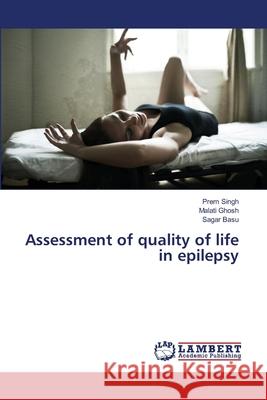Assessment of quality of life in epilepsy » książka
Assessment of quality of life in epilepsy
ISBN-13: 9783659476174 / Angielski / Miękka / 2013 / 96 str.
Epilepsy is a chronic neurological disorder associated with increased prevalence of psychopathology and impaired quality of life. The quality of life evaluation is a relatively new measure to evaluate the outcome of epilepsy. Present study has been done to assess the impact of epilepsy on quality of life of epileptic patients, to find out the clinical and demographic variables influencing quality of life along with screening the patients with epilepsy for psychiatric morbidity. The main findings of this study are that epilepsy is associated with significantly high psychiatric morbidity. Quality of life falls with increased seizure frequency, lower education level and single status. Married and educated people with low seizure frequency have better quality of life. We recommend that the comprehensive care of Epilepsy should offer neurological care and monitoring, psychiatric, psychosocial referral and advice on vocational rehabilitation.
Epilepsy is a chronic neurological disorder associated with increased prevalence of psychopathology and impaired quality of life. The quality of life evaluation is a relatively new measure to evaluate the outcome of epilepsy. Present study has been done to assess the impact of epilepsy on quality of life of epileptic patients, to find out the clinical and demographic variables influencing quality of life along with screening the patients with epilepsy for psychiatric morbidity. The main findings of this study are that epilepsy is associated with significantly high psychiatric morbidity. Quality of life falls with increased seizure frequency, lower education level and single status. Married and educated people with low seizure frequency have better quality of life. We recommend that the comprehensive care of Epilepsy should offer neurological care and monitoring, psychiatric, psychosocial referral and advice on vocational rehabilitation.











